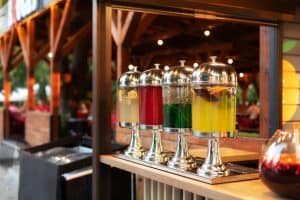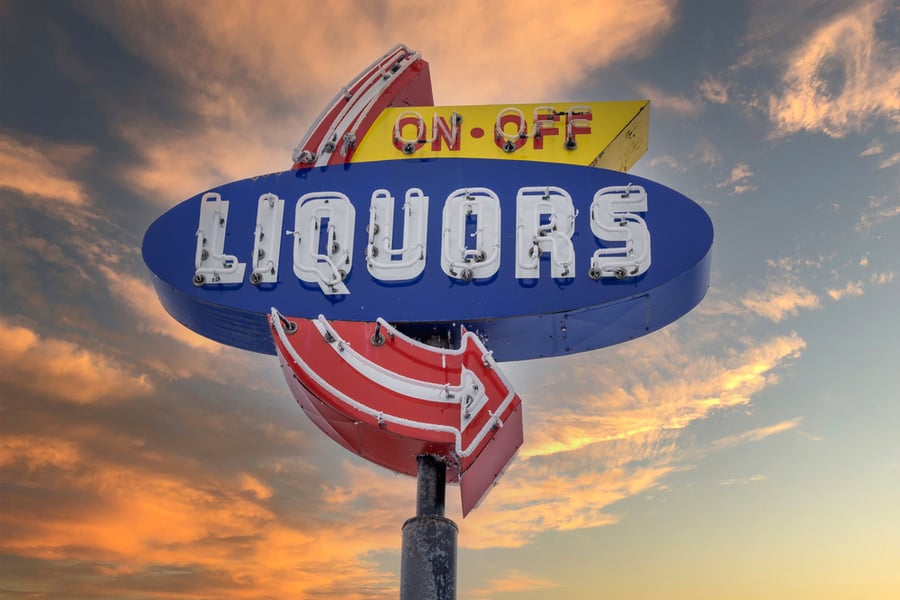
Businesses are constantly looking for new ways to expand and make more money. Bars are no different. To understand off-sale liquor, let’s talk about what on-sale liquor is.
On-sale liquor is how most bars typically operate. The customer walks in, orders a drink, pays the bill, and walks out empty-handed. Off-sale liquor, on the other hand, is the opposite.
Also known as off-premise liquor, off-sale liquor is alcohol purchased and consumed outside of a licensed establishment, such as a bar, restaurant, or nightclub. In other words, off-sale liquor means the bar also acts as a liquor store.
However a bar decides to operate, it needs to have an “on-sale,” or “off-sale” license, or both. Let’s look at everything you need to know about off-sale liquor.
Pros of Off-Sale Liquor
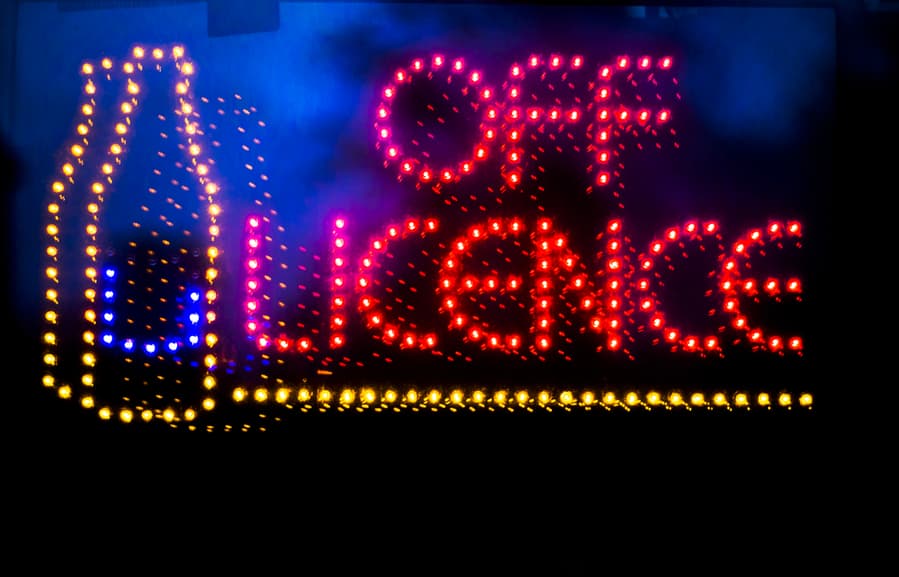
Below are some pros of off-sale liquor.
Increased Customer Convenience
It’s a no-brainer that customers find off-sale liquor more convenient. Customers can buy alcohol to consume off-premises so they can enjoy their favorite drinks from the comfort of their homes.
Increased Bar Revenue
An average customer can’t consume a six-pack of beer in one sitting, but off-sale liquor lets customers buy the six-pack to take home. Off-sale liquor increases the bill size of the average customer, and this brings in more revenue for your business.
One might argue that off-sale liquor reduces the frequency at which customers come to buy drinks, but it’s still worth it. Customers are naturally lazy, so even if they don’t buy drinks to go, they won’t come to the bar as often as you think.
More Profit Margins
Selling off-sale can get you more profits because it lets you buy in bulk or from wholesalers. This results in a higher profit margin than on-sale sales.
Customer Loyalty
Due to increased convenience and price, off-sale liquor will get you loyal customers that return to buy more.
More Business Opportunities
A bar that doesn’t offer off-sale only sells to consumers in the bar. Those that offer off-sale, however, can expand their business by selling to other businesses or people hosting special events.
Some other benefits of off-sale liquor include increased visibility and reduced staff costs.
Cons of Off-Sale Liquor
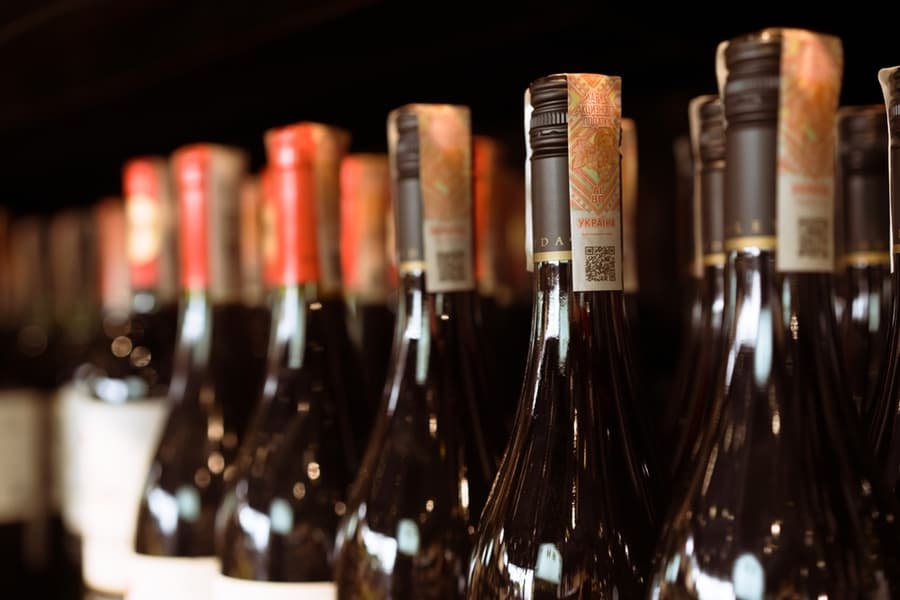
Here are some cons of offering off-sale liquor for the consumer.
Higher Risk of Abuse
The availability of off-sale liquor can make it easier for people to purchase large quantities of alcohol and can lead to excessive drinking and alcohol abuse.
Consumers are also more likely to become intoxicated and drive while under the influence, increasing the risk of traffic accidents, serious injury, and death.
Increased Risk of Underage Consumption
The ease of access to large amounts of alcohol increases the risk of underage consumption, as it is easier for minors to purchase large quantities for themselves and their friends.
Increased Risk of Alcohol Poisoning
With the availability of off-sale liquor, people are more likely to drink large amounts in a short period, increasing the risk of alcohol poisoning.
Wastefulness
Off-sale liquor can lead to excessive consumption and waste, as people may purchase more than they can reasonably consume.
Next are some cons of off-sale liquor for businesses.
An Additional License
Offering off-sale liquor requires you to get an additional license, and the length of the process varies depending on the state you’re in.
Hard to Cover Cost
If your business is in a town with many liquor stores, you have to try harder to make customers buy liquor from you instead of those stores.
You may need to offer more incentives or offer liquor for cheaper to beat the competition.
Theft
In an attempt to cover costs, most bars that offer off-sale liquor use their bartender as the shopkeeper for the off-sale portion of the business.
It’s difficult for one bartender to manage the front bar and off-sale liquor sales, so there might be some casualties.
In the grand scheme of things, the sale of off-sale liquor can also cause financial instability in society and an increased risk of violence and crime.
Regulations Surrounding Off-Sale Liquor
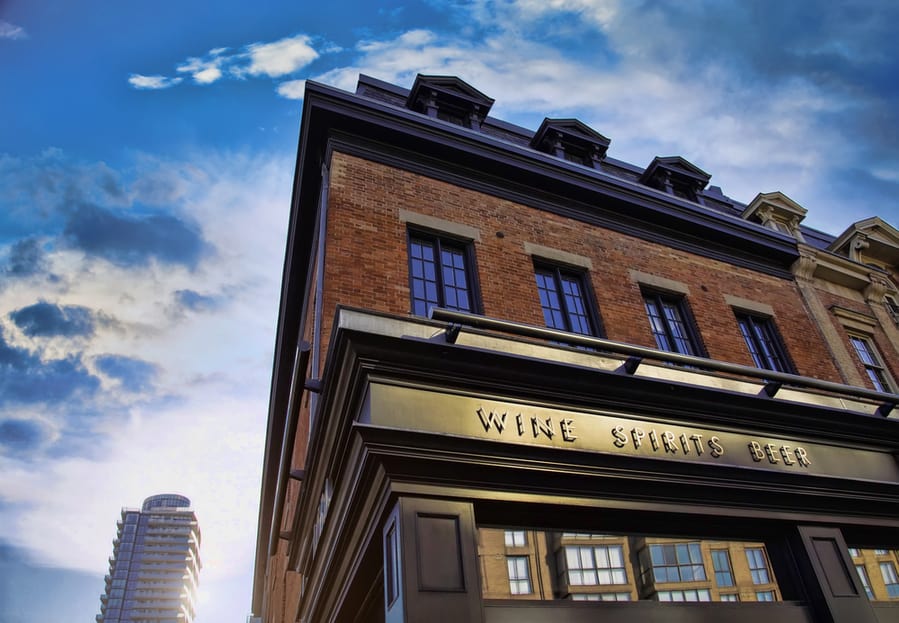
The sale of liquor is highly regulated in most states, and off-sale liquor is subject to the same regulations as on-sale liquor.
The legal age for purchasing off-sale liquor is typically 21 years old, and the buyer must present valid government-issued identification upon purchase.
Depending on the state, there may be restrictions on the quantity of alcohol purchased. For example, the location of the bar from residential areas, as well as restrictions on the hours of sale.
The license to sell off-sale liquor often expires one year after the issue date, so it must be renewed annually. In Minnesota, for example, the price to renew is almost $1500 at the time of writing.
How To Buy Off-Sale Liquor
First, you need to be of legal drinking age in your state or country. Every state has different laws and regulations regarding the sale of alcohol, so know these laws before attempting to purchase any off-sale liquor.
Check to see what types of off-sale liquor are available in bars around your area. Do your research before making a purchase. The bars around you may have websites, or you’ll have to walk in to make inquiries.
Depending on where you live, you may be able to purchase off-sale liquor from a local store, online, or through a delivery service. After getting your alcohol, store it well.
Tips for Storing Off-Sale Liquor
- For long-term storage, store off-sale liquor in a cool, dark place, such as a pantry or basement. Avoid direct sunlight, which can cause the liquor to spoil. If you drink it soon, keep it in the fridge.
- Keep bottles tightly sealed, and store them upright. This will prevent oxidation and evaporation.
- Store off-sale liquor away from items with strong odors, such as paint and cleaning supplies, which can affect the taste and smell of the liquor.
- Keep off-sale liquor away from children and pets.
Final Thoughts
For bars, off-sale liquor is a great way to make the drinking experience more convenient for customers and increase profit margins.
For the consumer, off-sale liquor can be a great way to stock up on alcohol for special occasions or just to enjoy it at home. Before making a purchase, it’s important to understand the laws and regulations surrounding off-sale liquor and how to store them properly.






